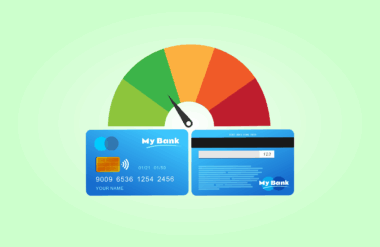Tips on Scheduling Your Credit Report Checks for Maximum Benefit
Monitoring your credit report should be a regular habit for everyone, as it is an important part of maintaining financial health. You should check your credit report at least once a year to catch any discrepancies early and understand your credit standing. Begin by obtaining your free annual credit reports from the three major credit bureaus: Experian, Equifax, and TransUnion. Utilize each bureau’s website to request these reports and take advantage of the fact that many consumers do not check their credit regularly. Set reminders on your calendars to help ensure that you follow through with this essential practice. Tracking changes in your credit report throughout the year will not only enhance your credit understanding but also provide insights beneficial for seeking loans or mortgages later on. Moreover, remember that any unexpected fluctuations in your score can warn you of potential identity theft, enabling you to take action swiftly. Establishing a schedule of regular checks will empower you to manage your credit effectively. Use tools like alerts and mobile apps to keep your credit status in check as you go about your daily financial activities.
Staying proactive about your credit score can yield numerous benefits for your financial future. After reviewing your credit reports, consider spreading out your checks throughout the year to maintain more consistent monitoring. Instead of checking all three reports simultaneously, you might want to stagger them—this way, you can space out your review and keep an eye on your credit continuously. For instance, check one bureau every four months. This consistent monitoring will help you spot any errors, fraudulent accounts, or changes that could negatively impact your score. If you decide to check your credit report more than once a year, make sure to record the reasons behind each check, as this can also provide valuable insights. Understanding why your credit score may fluctuate can better prepare you to manage financial decisions like loans or credit card applications in the future. Additionally, remember the importance of accessing your credit reports when you anticipate applying for any significant loans or contracts. This prior review allows you to address any concerns ahead of time, leading to a smoother application process when the time comes.
Another excellent time to access your credit report is when you receive any notifications of significant changes to your credit accounts. If you apply for a new credit card, a loan, or even a utility service, these activities might also cause a temporary dip in your credit score. Being vigilant about your credit during these applications will give you peace of mind. It can also help ensure that your financial habits align with your goals, especially when making significant purchases like a home. If you notice any inconsistencies, contact the relevant creditor immediately to dispute inaccuracies. Actively engaging with your credit report is just as crucial as merely checking it. If you’re planning a major life event, such as getting married or starting a business, it is also a wise time to evaluate your credit health. A strong credit score can open doors to better financial opportunities and save you money on interest rates. Make it a habit to pair your significant life milestones with a credit check to keep your financial foundations solid and ready for any new challenges.
Understanding Credit Inquiries
Whenever a lender checks your credit report, a hard inquiry is recorded that can influence your score. Hence, it is beneficial to understand how to manage these inquiries and minimize their effect on your score. By keeping track of which creditors pull your report, you can better anticipate how many hard inquiries will appear. If you are shopping around for loans, like mortgages or car financing, do so within a 14- to 45-day window. This is important because most scoring models treat multiple inquiries for the same type of loan within this timeframe as a single inquiry, which limits their effect on your score. Additionally, be cautious of non-essential inquiries from creditors that may not impact your long-term financial standing. For example, promotional inquiries can show up but do not affect your credit. Regularly checking your credit history will help you understand how monitoring your score can ensure that you maintain a healthy financial profile throughout various phases of your life. Staying vigilant will empower you to make informed financial decisions.
Each time you check your credit report, be sure to evaluate your overall financial goals. Understanding how your credit performance aligns with your aspirations can help guide your efforts. If you’re aiming to improve your score, consider focusing on areas like payment history and credit utilization while monitoring your reports. As you work on these elements, you’ll be building a better credit profile. For instance, diving into your credit utilization, which should ideally be below 30 percent, will help ensure that your available credit aligns with your spending habits. Even minor adjustments to your usage can have positive impacts, including reducing overall debt or managing your expenses. Furthermore, understanding the importance of timely payments will reinforce positive credit behavior. Delinquencies impact your score and should be avoided. As you gain insights from your credit reports, be sure to incorporate lessons learned into your budgeting and saving habits. These practices will help you cultivate a healthier financial environment for both your present situation and your future aspirations. Mindful management is essential for long-term credit health and financial well-being.
Finally, consider leveraging technology to aid in your credit management efforts. Various apps and online tools can provide alerts and reminders about key credit factors. By utilizing tools available, you can keep close tabs on your credit score, analyses of your credit habits, and anticipated changes. Many services offer free or low-cost access to credit scores and reports, allowing continuous checks without stress regarding fees. Setting notifications for when your credit changes can empower you to act quickly if you spot suspicious activity. Carefully examine your financial health through these tools—many allow you to simulate various scenarios to determine how changes in spending may impact your credit score. In addition, consider subscribing to a credit monitoring service, as many offer protection against identity theft. These services can provide security in the digital age. It’s becoming increasingly popular and wise to use advanced technology to bolster your ability to manage and monitor your credit. Make sure to choose a service that aligns with your needs and offers pertinent features tailored to your goals.
In conclusion, establishing a habit of regularly checking your credit report will maximize your financial awareness and decision-making. Through informed scheduling, proactive engagement, and utilizing helpful technology, you can secure a healthier financial outlook. Assessing your reports continuously aids in early detection of fraud, helps you maintain a desirable credit score and prepares you for life-changing decisions. Developing an optimal system for your credit checks that works for your lifestyle can only lead to enhanced credit health. Staying engaged with your credit status promotes better financial decisions in the long run. Remember the importance of aligning your review habits with your goals, adjusting for significant life changes, and employing technology. This multifaceted approach will help maintain a comprehensive focus on all aspects of your credit journey. Using strategies that promote positive habits regarding your credit and finance will ultimately yield significant results over time. Craft a checking routine that builds upon these tips for comprehensive management of your credit and finances, ensuring you remain in charge of your financial destiny.





